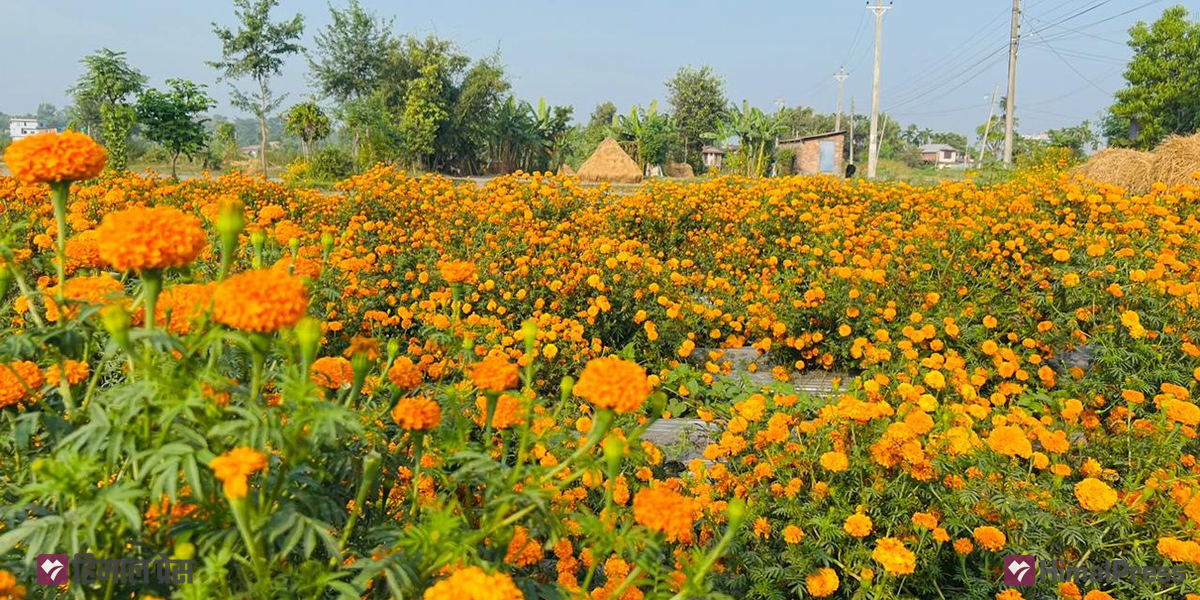 Marigold farm operated by Kadambini Agriculture Cooperatives in Gothgaun of Sundar Haraicha-7 in Morang. Photo: Himal Press
Marigold farm operated by Kadambini Agriculture Cooperatives in Gothgaun of Sundar Haraicha-7 in Morang. Photo: Himal Press
ITAHARI: Tihar, the festival of lights and flowers, is fast approaching. During this time, the demand for flowers reaches its peak.
This year, local farmers are in high spirits because the government has imposed a ban on flower imports from India for the festival. They are hopeful that this ban will finally ensure a fair price for their flower produce. Beyond just the Tihar festival, these farmers are urging the government to consider a year-round restriction on flower imports, a move, they believe, would promote commercial flower farming in the country.
Numerous farmers are actively engaged in commercial floriculture in Koshi Province. However, they often find themselves dissatisfied because flower farming tends to be seasonal. This situation is not limited to individual farmers; even institutional floriculture faces similar challenges.
One such institution is the Kadambini Agriculture Cooperative in Gothgaun of Sundar Haraicha Municipality-7. The cooperative has been involved in flower farming for the past three years. “While there is a consistent demand for flowers, the market remains unpredictable. With a stable flower market, year-round farming could become a reality,” Milan Luitel, the secretary of the cooperative, said.
According to Luitel, the cooperative is currently producing marigolds on a four-kattha piece of land, cultivating varieties such as ‘Karma 111’ and ‘Tennis Ball’. “We initiated marigold farming with a one-kattha leasehold in our first year. From the second year onwards, we expanded to four katthas of land,” he added.
According to the cooperative, an investment of Rs 20,000 can yield flowers worth Rs 100,000.
Luitel firmly believes that a ban on flower imports would eliminate market uncertainty. “We can easily meet the demand of Itahari and Biratnagar if the flower import is banned. However, if the flowers bloom before or after the Tihar festival, finding a market would be challenging,” he added.
While marigolds typically start blooming in around 60 days, some varieties can bloom as early as 45 days. Luitel mentioned, “Our flowers bloomed ahead of schedule this year, causing some to dry up prematurely,” he added.
According to Luitel, the cooperative plans to gradually expand its production area if the demand is good in the market. “If marigold imports were permanently restricted, it would encourage more farmers to expand their flower farming operations,” he added.
Luitel said an investment of Rs 20,000 can yield flowers worth around Rs 1,000. “Since we operate our flower farming through cooperatives, our members reap the benefits. Unlike private sector investments that benefit only a select few, cooperative investments can benefit a larger number of people,” he said.





















